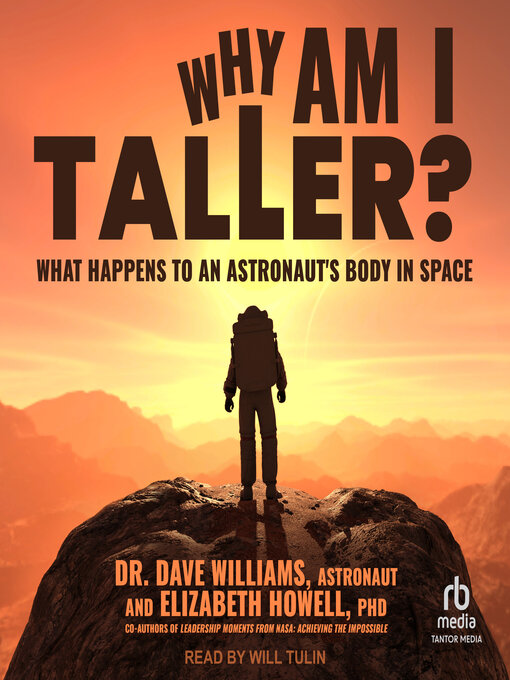- Arts & Crafts
- Fitness and Health
- Outdoor Recreation
- Biography & Memoir
- Business
- History
- All Nonfiction
- See all
Space doctors are on the case. You'll meet the first twin to spend a year in space, the woman who racked up three physically challenging spacewalks in between 320 days of confinement, and the cosmonaut who was temporarily stranded on space station Mir while the Soviet Union broke up underneath him. What are we learning about the human body?
As astronauts target moon missions and eventual landings on Mars, one of the major questions is how the human body will behave in "partial gravity." How does the human body change on another world, as opposed to floating freely in microgravity? What can studies on Earth and in space tell us about planetary exploration? These questions will be important to the future of space exploration and to related studies of seniors and people with reduced mobility on Earth.

